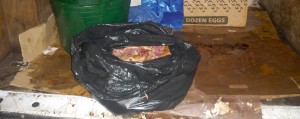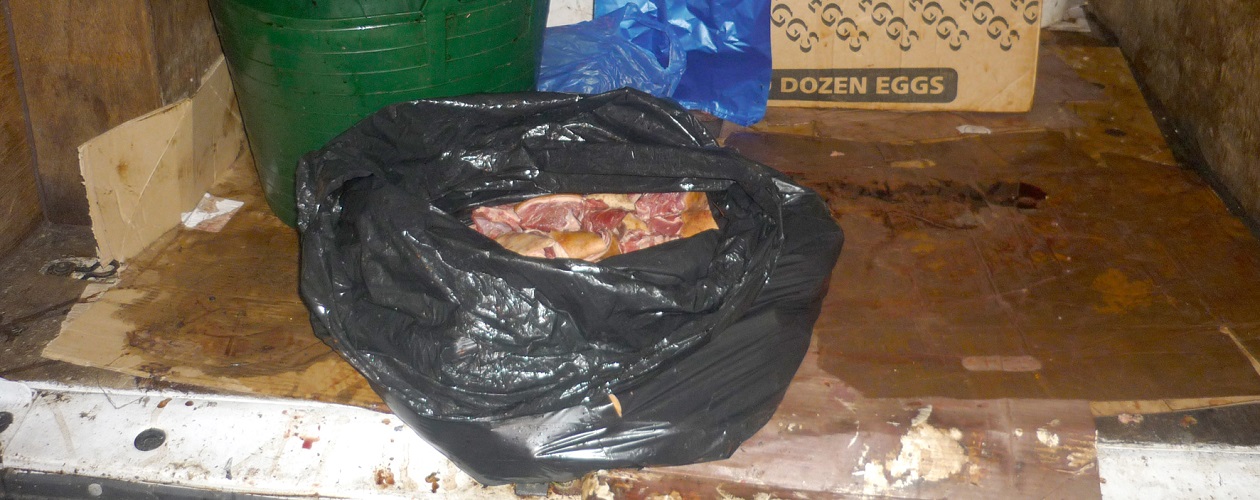A van-load of meat was ordered to be destroyed after Croydon Council food safety officers found that it had been illegally slaughtered and was destined for sale to the public (Photos on Flickr).
 |
| [relatedPosts title=”Related Posts”] |
|
|
In addition to the meat’s destruction, Croydon magistrates awarded the council costs of £2,350.60, to be paid by the van’s driver.
Food safety officers were called to Croydon police station on 25 April after police had stopped the van and found a large consignment of raw meat, in insanitary conditions, in the unrefrigerated load area.
The council’s team identified the meat as “smokies” – illegally slaughtered and butchered meat that has not undergone an official inspection process, and is usually sold on the black market for human consumption.
The cuts of meat are called smokies because the flesh and fur are left on and then scorched, giving a smoky appearance and aroma.
The court heard that the van was very dirty and smelly, the floor covered in blood-soaked flattened cardboard boxes, and the smokies were found in five bin liner bags. Also in the van were five large buckets containing blood residue, one also containing cuts of liver.
The meat bore no health nor origin markings, the bags were not labelled and there was no documentation in the van relating to the meat.
A Food Standards Agency meat hygiene inspector identified several pieces of meat containing vertebrae which had been split, and in which the spinal cord was still in place; a piece of material which had the appearance of being from the spleen; and other pieces with wool still attached. All are classed Specified Risk Material in sheep carcasses over 12 months of age, and are fit for neither human nor animal consumption.
It was deemed that the meat had not been subject to the provisions of the regulations applied in slaughterhouses and cutting plants to protect human health. The meat had been illegally produced and should not be eaten.
Councillor Mark Watson, cabinet member for safety and justice, said: “This is a great result for the council’s food safety team.
“Working with the police, they were able to quickly identify meat that, despite being unfit for human consumption, could very probably have ended up on the plates of unsuspecting people, putting their health and safety at risk.
“The court costs levied in this case send out the message that Croydon is not the place to try to sell goods that fail to meet the necessary health and safety standards.”
Further Information
- The requirement for meat requiring inspection and to be health marked is made under (EC) 853/2004. The removal of the skin provides for full meat inspection. Where the skin is not removed, meat inspection cannot determine significant pathologies such as septicaemia or jaundice, bruising or abnormal colours, which may be indicative of systemic pathologies or disease.
- Smokies do not undergo any of these processes and cannot be guaranteed safe for human consumption.





